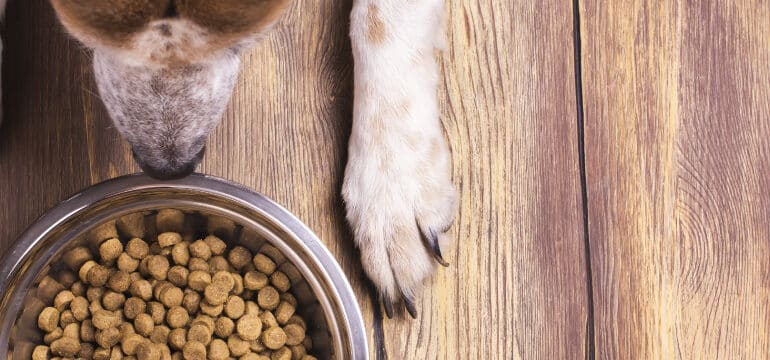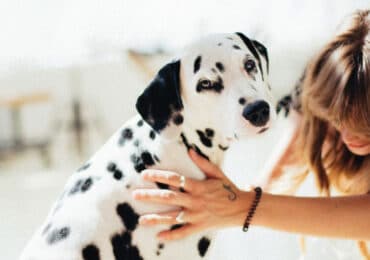Walk into any pet store or pet-food aisle in the grocery store, and you may be overwhelmed with the myriad of options available to help feed and provide proper nutrition for your pet. There are options for ‘weight loss,’ ‘natural,’ ‘whole grain,’ and so much more. With bright colors and every last package more enticing than the rest, it can be hard to know what’s actually nutritious and what is a marketing ploy. Luckily, there are a few things that you can look for to ensure you are making the best decision for the health of your pet.

Like our own food, pet food marketing trends come and go and are influenced by the buzzwords of the day; think ‘low fat,’ ‘natural,’ ‘holistic,’ ‘whole grain,’ ‘a good source of XYZ,’ etc. These words resonate with humans because that is how we prepare our own food. The truth is that most pet food is processed and sadly has very little regulation, which has led to an increase in recalls as of late. Natural and veggie-based pet foods are born out of market demand from owners, not necessarily because they are better for your pet. Try to avoid these marketing gimmicks and dig a little deeper when choosing the best option.

If you’ve noticed an increase in the number of pet food recalls lately, that’s because there has been. Pet foods are not regulated with the same stringency as food fit for human consumption, and many different brands are manufactured at the same companies. It’s important to know that there may be more recalls coming into play related to the current recall events, and to keep yourself abreast of any updates that may affect your pet’s food. There are many ways you can keep up, but here are a few ways we recommend: AVMA’s recall list, signing up for PetMD recall alerts, or following our own Facebook page, where we post recall alerts immediately after they are released.

This may sound like common sense, but one of the best things to keep in mind when choosing a pet food is to feed your dog like a dog and cat like a cat. What is best for you and your body is not what is best for your pet. For example, you may be a vegetarian, but your cat is not. Cats are obligate carnivores; they cannot survive without the nutrients that pet food gives them. If you try to feed your cat a vegetarian diet, they will not be able to survive. Also, many of the ingredients that are found in human food are not safe for pets, such as xylitol (found in peanut butter), onions, and chocolate.
So check those recall lists, and the next time you’re at the store and wondering which food option is the best for your furry friend, you’ll know exactly which one to choose and which to avoid for their health and well-being. Want to stay up on all the great pet owner tips, tricks, and need-to-knows every month? Call our office to sign up for our monthly e-blasts today at 701.757.3500




